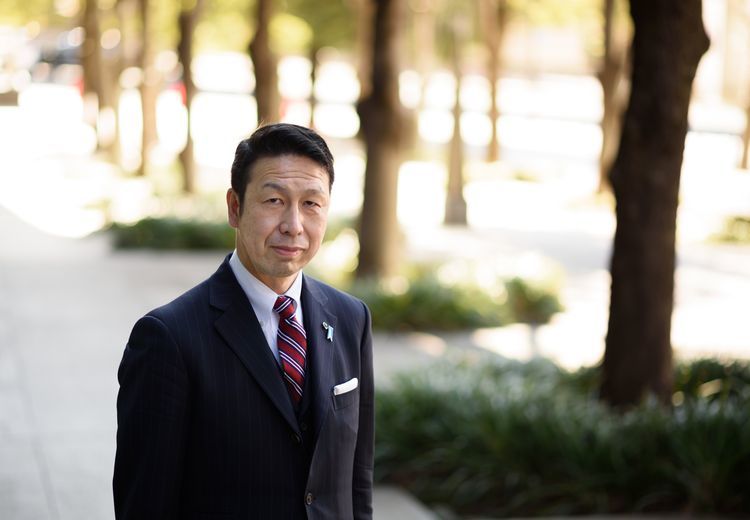
The man blocking the world’s largest nuclear plant says he grew opposed to atomic energy the same way some people fall in love.
Previously an advocate for nuclear power in Japan, Ryuichi Yoneyama campaigned against the restart of the facility as part of his successful gubernatorial race last year in Niigata. He attributes his political u-turn to the “unresolved” 2011 Fukushima Dai-Ichi disaster and the lack of preparedness at the larger facility in his own prefecture, both owned by Tokyo Electric Power Co. Holdings Inc.
Yoneyama said: “Changing my opinion wasn’t an instant realization
“It was gradual. As people say, you don’t know the exact moment you’ve fallen in love.”
Yoneyama won’t support the restart of the Kashiwazaki-Kariwa plant in Niigata until an investigation is complete into the chain of events that resulted in the triple meltdown at Fukushima, which he plans to visit Wednesday. While utilities don’t need approval of local authorities to restart plants, Japanese power companies are tradition-bound not to move ahead until they get their consent.
Yoneyama, a 49-year-old doctor and native of Niigata, is one of the highest-profile local opponents pitted against a political establishment led by Prime Minister Shinzo Abe, which sees nuclear power as crucial for the country’s long-term energy security and environmental goals. Regulations and public opinion are keeping nearly all of Japan’s atomic stations shut almost six years after the accident at Fukushima, where the search has barely begun for fuel that burned through to the bottom of the reactors.
Building local trust for the technology again, will be key claims James Taverner, an analyst at IHS Markit Ltd.
Taverner said “If the local governor remains firmly opposed to the restart, it will be very difficult for the reactors to come back online.
“In addition to the local government, building the support and trust of local residents is key.”
A Kyodo News poll on the day of Yoneyama’s October election showed about 64 percent of Niigata voters opposed the restart of Kashiwazaki-Kariwa, known popularly as KK.
The economic argument, however, is beginning to hold less sway, with Yoneyama saying the benefits to the local economy are “overstated”. While the prefecture risks missing out on 1.1 billion yen a year in government support without the restart, that represents a small slice of the prefecture’s budget, which tops 1 trillion yen, according to Yoneyama.
While restart opponents like Yoneyama demand the government guarantee the safety of the reactors, they’ve also criticized evacuation and emergency response plans as inadequate.
In his first meeting with Tokyo Electric executives since taking office, Yoneyama earlier this month told Chairman Fumio Sudo and President Naomi Hirose that he won’t support KK’s restart until a new evacuation plan is drawn up using the results of a Fukushima investigation. Tepco will fully cooperate with the probe and stay in communication with the governor, the company said in response to a request for comment.
Yoneyama said: “Once I realized that the Fukushima disaster couldn’t be easily resolved, of course my opinion changed.
“If another accident occurs, overseas tourism will become a distant dream. Even Japanese may flee the country.”